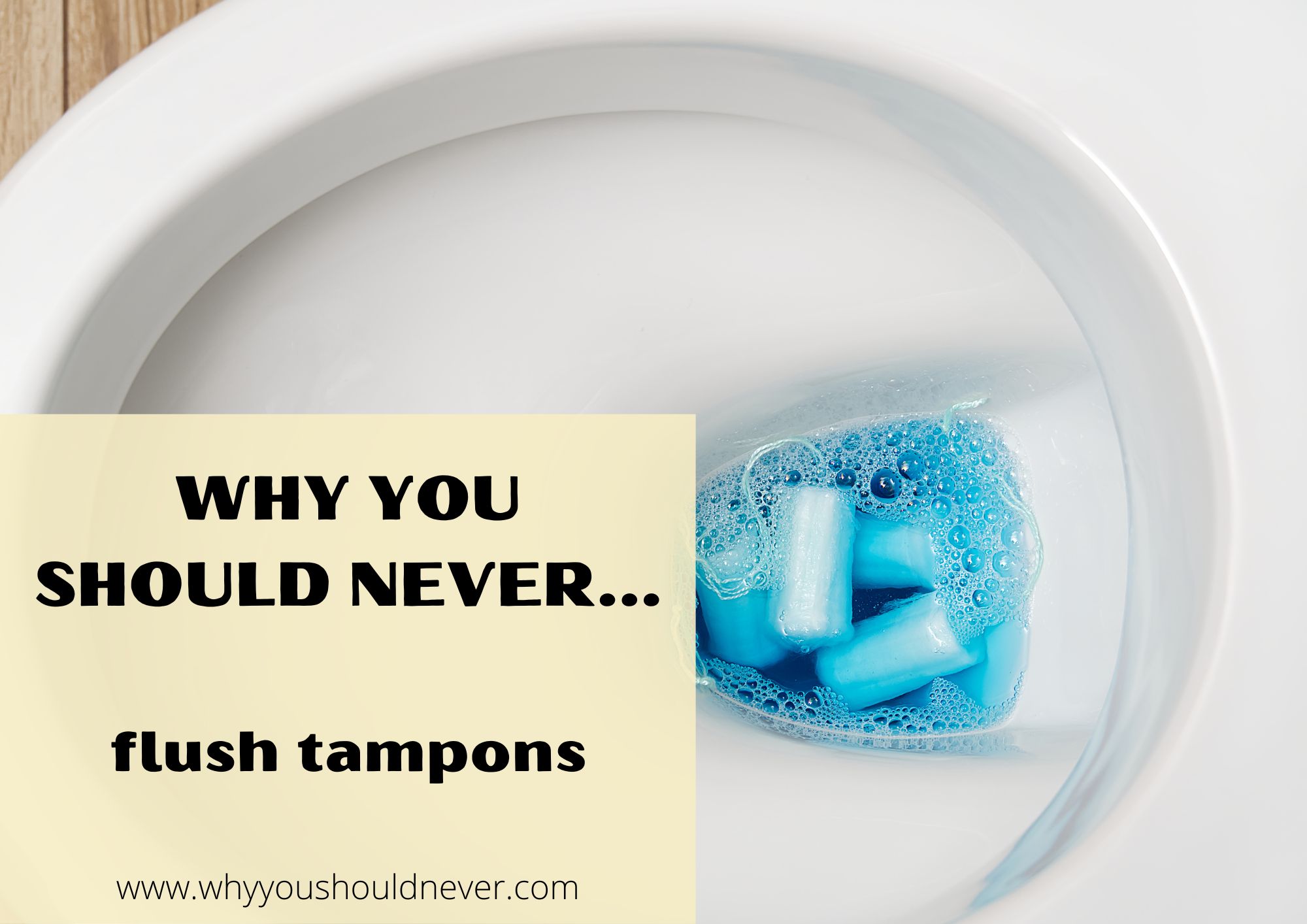![]()
Why You Should Never Flush Tampons
Let’s have a heart-to-heart, ladies. You’re just wrapping up your period, there’s a used tampon, and the toilet is right there… It’s tempting, isn’t it? Just a quick drop-and-flush and it’s out of your life, right?
But wait a moment, what happens after you flush it? It doesn’t simply vanish into thin air, no matter how much we’d like it to.
As convenient as it seems, this simply isn’t the right way to dispose of your used tampons. Let’s take a look at some of the reasons why below.
5 reasons why you shouldn’t flush your tampons
1. Tampons and pipes aren’t buddies
Did you know your seemingly harmless tampon could throw a real tantrum in the sewer system? Unlike toilet paper, tampons are designed to absorb and retain fluid, causing them to expand significantly.
So, when you flush them, they don’t break down like the TP does. Instead, they cause obstruction and backups in your pipes, which could lead to costly plumbing problems. So, unless you fancy a visit from a plumber, it’s best to give flushing a miss.
2. Sewer systems and water treatment plants suffer
Even if your tampon somehow makes it past your pipes, it’s still not a welcome guest in the sewer system. Most water treatment facilities aren’t equipped to deal with them, as they’re designed to remove human waste and toilet paper, not expandable cotton products.
Tampons often end up in filters that require manual cleaning. Imagine being the guy who has to fish out those flushed tampons? Not a fun day at work, huh?
3. Tampons and the environment have a strained relationship
You might be asking yourself, “Okay, but what if my tampon escapes the water treatment plant?” Well, my friend, then it ends up contributing to environmental pollution. If not removed during the treatment process, they can end up in rivers, seas, and beaches, causing harm to aquatic life.
These tampons take years, sometimes even centuries, to decompose, unlike natural waste. So, you know, a tiny bit selfish to our planet pals there.
4. The wildlife might mistake your tampons for lunch
No joke here, this is serious. Tampons, sanitary pads, and other personal hygiene items can be mistaken for food by animals, especially if they’ve made it into rivers or oceans. This can cause injury or death to the creature.
But aside from that, if you’re a frequent consumer of seafood, there’s a fair chance that what goes around could potentially come around. Meaning, there’s a not-so-appetizing risk that your flushed tampons could indirectly end up back on your dinner plate (which, honestly, would serve you right).
5. In some places, it’s illegal (Yeah, you heard right)
In certain parts of the world, it’s against the law to flush tampons. Some locations have strict regulations about what can and cannot be flushed due to their delicate or already overwhelmed sewage systems.
Some of the places that are particularly sensitive when it comes to this practice are as follows:
- Greece: Their sewerage systems aren’t equipped to deal with anything other than human waste and a small amount of toilet paper. Hence, you’re advised not to flush tampons.
- Egypt: Much like Greece, Egypt’s plumbing and sewage systems can’t handle flushed tampons.
- Rural Areas: In rural regions across the globe, especially those that rely on septic tanks, flushing tampons is highly discouraged due to the potential for blockages.
- Boat Marinas: On a different note, many marinas around the world (both fresh and salt water) have regulations against flushing anything but human waste due to the potential environmental impact.
- Hawaii: While not explicitly illegal, Hawaii discourages flushing of non-degradable items, including tampons, due to its sensitive marine environment.
Violating these rules could result in hefty fines.
Wrapping things up
So, what’s the takeaway? Disposing of tampons responsibly might not be as convenient as a quick flush, but it’s clearly the smarter and more considerate move.
By binning your tampons as opposed to flushing them, you’re showing respect to the not-so-glam side of our infrastructure, the hardworking folks at water treatment plants, the diverse wildlife that calls our oceans and rivers home, and even your own seafood dinner.
Moreover, you’re dodging a real bullet by not inviting a potential plumbing disaster in your home or workplace. You know what they say, “Prevention is better than cure,” or in this case, “An ounce of prevention is worth a pound of plumbing repairs.”
